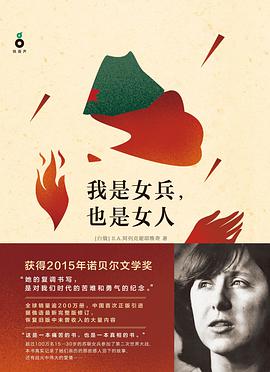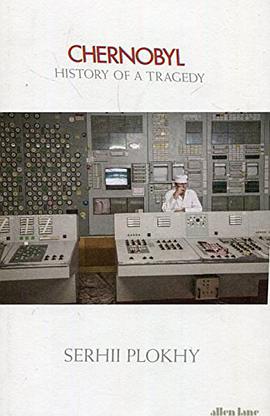*WINNER OF THE BAILLIE GIFFORD PRIZE FOR NON-FICTION 2018*
*WINNER OF THE PUSHKIN HOUSE BOOK PRIZE 2019*
'As moving as it is painstakingly researched. . . a cracking read' Viv Groskop, Observer
'A riveting account of human error and state duplicity. . . rightly being hailed as a classic' Hannah Betts, Daily Telegraph
On 26 April 1986 at 1.23am a reactor at the Chernobyl Nuclear Power Plant in Soviet Ukraine exploded. While the authorities scrambled to understand what was occurring, workers, engineers, firefighters and those living in the area were abandoned to their fate. The blast put the world on the brink of nuclear annihilation, contaminating over half of Europe with radioactive fallout.
In Chernobyl, award-winning historian Serhii Plokhy draws on recently opened archives to recreate these events in all their drama. A moment by moment account of the heroes, perpetrators and victims of a tragedy, Chernobyl is the first full account of a gripping, unforgettable Cold War story.
'A compelling history of the 1986 disaster and its aftermath . . . plunges the reader into the sweaty, nervous tension of the Chernobyl control room on that fateful night when human frailty and design flaws combined to such devastating effect' Daniel Beer, Guardian
'Haunting ... near-Tolstoyan. His voice is humane and inflected with nostalgia' Roland Elliott Brown, Spectator
'Extraordinary, vividly written, powerful storytelling ... the first full-scale history of the world's worst nuclear disaster, one of the defining moments in the Cold War, told minute by minute' Victor Sebestyen Sunday Times
'Plays out like a classical tragedy ... fascinating' Julian Evans, Daily Telegraph
'Here at last is the monumental history the disaster deserves' Julie McDowall, The Times
Reviews
An insightful and important book, that often reads like a good thriller, and that exposes the danger of mixing powerful technology with irresponsible politics
Yuval Noah Harari, author of Sapiens
As moving as it is painstakingly researched, this book is a tour de force and a cracking read. . . Without losing any detail or nuance, Plokhy has a knack for making complicated things simple while still profound
Viv Groskop, Observer
A work of deep scholarship and powerful stroytelling. Plokhy is the master of the telling detail
Victor Sebestyen, Sunday Times
A compelling history of the 1986 disaster and its aftermath. . . Plokhy's well-paced narrative plunges the reader into the sweaty, nervous tension of the Chernobyl control room
Daniel Beer, Guardian
The first comprehensive history of the Chernobyl disaster. . . here at last is the monumental history the disaster deserves
Julie McDowall, The Times
Plokhy, a Harvard professor of Ukrainian background, is ideally placed to tell the harrowing story of Chernobyl. . . he has an immense knowledge of Russian and Ukrainian history and maintains the highest standards of scholarship
Tony Barber, Financial Times
A meticulous account of the disaster - and how the Soviet authorities tried to cover it up. . . A worthy winner of this year's Baillie Gifford prize for nonfiction
Robbie Millen, The Times Books of the Year
A riveting account of human error and state duplicity. . . rightly being hailed as a classic
Hannah Betts, Daily Telegraph
A masterful retelling. . . Mr Plokhy's book will endure as a definitive history
Economist
Review
An insightful and important book, that often reads like a good thriller, and that exposes the danger of mixing powerful technology with irresponsible politics (Yuval Noah Harari, author of Sapiens)
This history reads like an academic thriller written by Malcolm Gladwell. Without losing any detail or nuance, Plokhy has a knack for making complicated things simple while still profound. As moving as it is painstakingly researched, this book is a tour de force and a cracking read (Viv Groskop Observer)
A work of deep scholarship and powerful stroytelling. Plokhy is the master of the telling detail (Victor Sebestyen Sunday Times)
A compelling history of the 1986 disaster and its aftermath. . . Plokhy's well-paced narrative plunges the reader into the sweaty, nervous tension of the Chernobyl control room (Daniel Beer Guardian)
The first comprehensive history of the Chernobyl disaster. . . here at last is the monumental history the disaster deserves (Julie McDowall The Times)
Plokhy, a Harvard professor of Ukrainian background, is ideally placed to tell the harrowing story of Chernobyl. . . he has an immense knowledge of Russian and Ukrainian history and maintains the highest standards of scholarship (Tony Barber Financial Times)
A meticulous account of the disaster - and how the Soviet authorities tried to cover it up. . . A worthy winner of this year's Baillie Gifford prize for nonfiction (Robbie Millen The Times Books of the Year)

